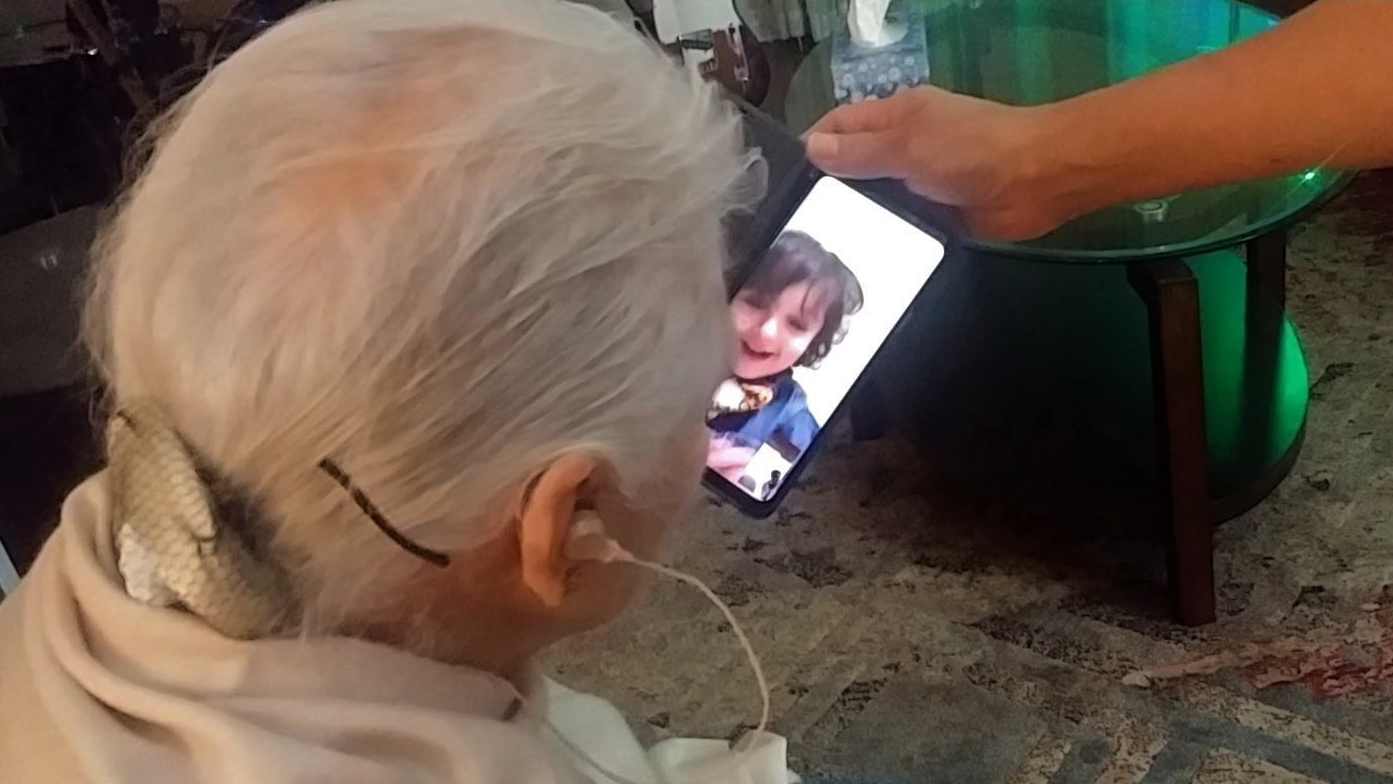Senior care workers warn the pandemic is leaving seniors more isolated than ever
Manager in Ontario says workers face job burnout as roles expand

caption
A Toronto-area senior video-chats with her grandson.The restrictions imposed by Ontario’s COVID-19 lockdown has senior care providers struggling to adapt their services to this vulnerable population.
Kalsang Dolker co-ordinates the Adult Day Program for seniors with cognitive and physical disabilities at Etobicoke Services for Seniors (ESS). Before the lockdown in March, she said clients could expect a morning social with breakfast and coffee, followed by an exercise class, mental aerobics and reminiscence therapy.
All of this changed when Ontario entered a state of emergency on March 17. ESS, along with other senior care organizations, had to suspend in-person programming.
“It was a big change. The clients we have in the program, they have dementia. For people with dementia, routine is very important,” Dolker said. “Their routine was just broken.”
Dolker and ESS pivoted quickly to conducting classes online and over the phone. Here, accessibility issues were magnified for their clients.
“They won’t go on a computer and join Zoom. It’s very hard,” Dolker said. “So, we telephone them. Sometimes they recognize our voices, sometimes they don’t.”
Challenges were not limited to clients. The pandemic also created new challenges for the personal support workers who care for them, such as picking up groceries.
“They have been providing services in person, in-home respite. Our caring services never stopped during the pandemic,” Dolker said. “They have done, and they continue to do, a lot of in-person services.”

caption
Personal support workers assist clients with everyday tasks, such as taking medications.Maria Sherry Lacson Tan has been a personal support worker and caregiver for more than 20 years. She said caregiving is physical, mental and emotional work. When the lockdown began, she was caring for a client in a long-term care home.
“Even though I’m not related to her,” Tan said, “we developed a kind of relationship.”
After the lockdown, Tan was not allowed to visit her client in long-term care. “I used to visit her, feed her, talk to her, bring her downstairs. She had Parkinson’s and could not see,” Tan said.
In June, Tan said, her client decided to end her life.
“I think for her, it was scary. She told me, ‘Can you be my voice.’ The long-term care wouldn’t allow me to go visit. And she just decided to rest.”
To help their personal support workers, Dolker said organizations should focus on their staff-client ratio. ESS usually assigns two or three clients for each support worker, often with additional support staff. However, Dolker said, “If one person is looking after eight, nine, 10 clients, they are doomed to be burnt out. For sure.”
On Oct. 1, Ontario Premier Doug Ford announced a $3 pay increase for personal support workers. This came a few days after he announced the province will spend $10.3 million for the Personal Support Worker Return of Service Program, which will hire 2,000 more personal support workers in long-term, in-home, and community care.
Dolker said there is a simple thing people can do to support the seniors in their community.
“A very easy thing to do is pick up the phone, talk to your parents and grandparents. Because they need it,” she said.
“All they see is the news, virus, numbers. If you can do Zoom, let them see the children. They can’t hug them, but they can see them, they can see their smiles, see the spark in their eyes. That is what is really needed.”
About the author
Kunal Chaudhary
Kunal Chaudhary is a reporter with The Signal based in Toronto, Ontario.
